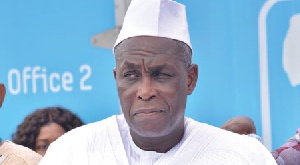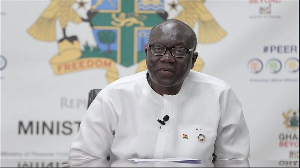The current standoff between the Judicial Service Staff Association of Ghana (JUSSAG) and the Ministry of Employment and Labour Relations, which has seen the two sides unable to settle on an agreement to compel the former to call off its industrial action can be put down to their failure to consult, Austin Gamey, a notable labour consultant has said.
According to him, both teams felt they knew it all, hence would not give in to professional counsel, a reason for which such agitations by workers flare up from time to time, instead of being resolved once and for all.
Mr Gamey said these on Accra100.5FM’s morning show, Ghana Yensom, on Tuesday May 31, when he shared his views on the ongoing JUSSAG strike declared on May 20, 2016 by the association, to demand redress to its outstanding issues regarding salaries and allowances. A meeting with officials of the Ministry of Employment and Labour Relations last week also ended in a stalemate.
Mr Gamey said he would not publicly heap blame on either side of the stalemate, as he had had cause to speak with them privately. “But they are behaving like they know everything themselves. That’s where they’ve come to. Let them solve it if that’s what they want to do. On their own, they may not be able. They can only have a settlement of a kind,” he told Chief Jerry Forson on the programme.
He found it “disturbing”, the decision of JUSSAG to resort to a strike to press home its demands, as well as the manner in which the issue has been handled, saying it was “a very old way of doing things”.
“The world has come of age now and Ghana is no exception. So, this approach, in the face of our new Labour Act and also a better kind of educational system across the world, I do not see the reason why we should be having this kind of developments on the labour front in the 21st century. I am so surprised and lost for words that we have come to where we have come to now,” he continued.
“We should be mindful of whatever we do as employees or employers. They will have to take into consideration the larger Ghanaian population’s interests when acting it out.
“I didn’t really expect that a matter of this size would come to the kind of situation they find themselves in now. If they think that they cannot resolve the matter, both of them should submit themselves to the National Labour Commission for them to either arbitrate or mediate or do some facilitation between them. But to hold anybody to ransom, whether as employers or as union leaders, is not fair to the system and to the people of Ghana.”
General News of Tuesday, 31 May 2016
Source: classfmonline.com













